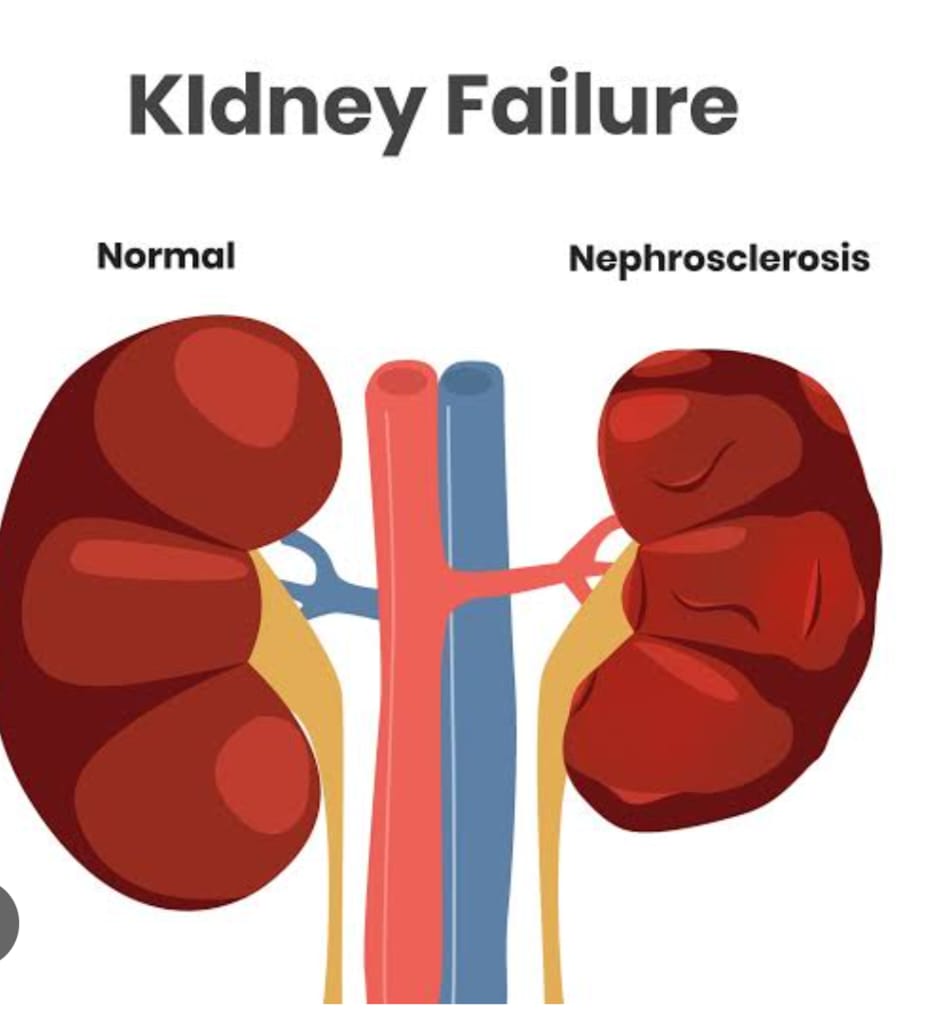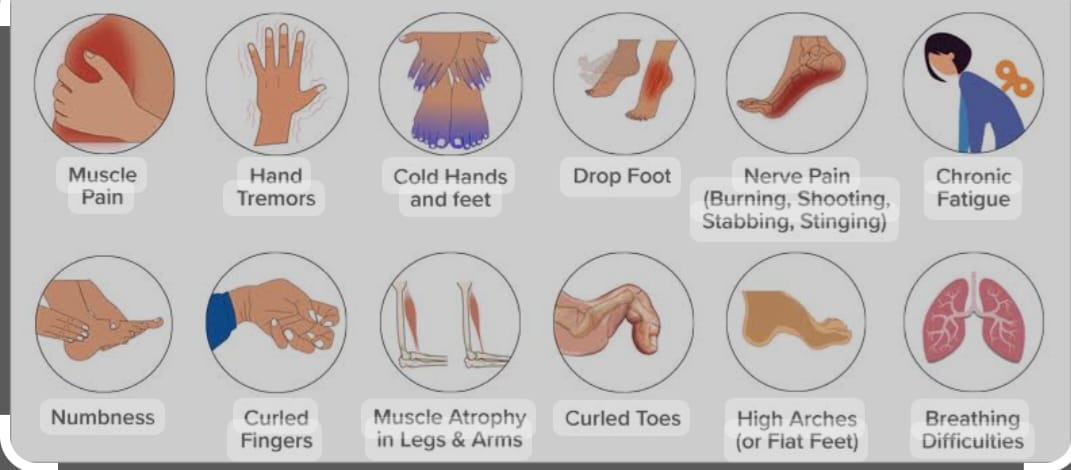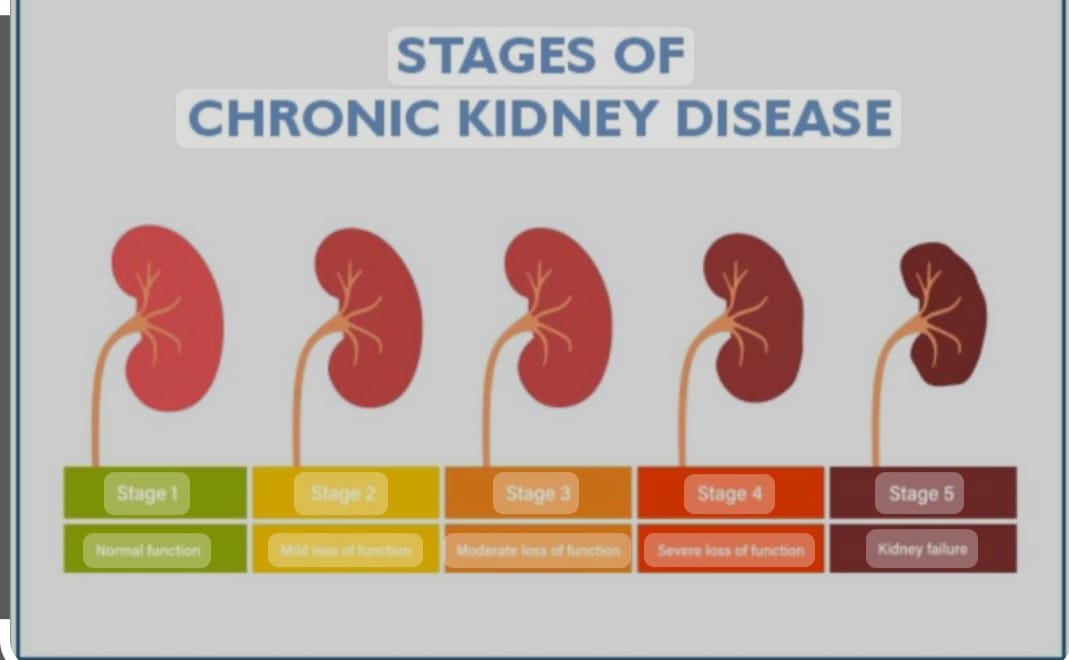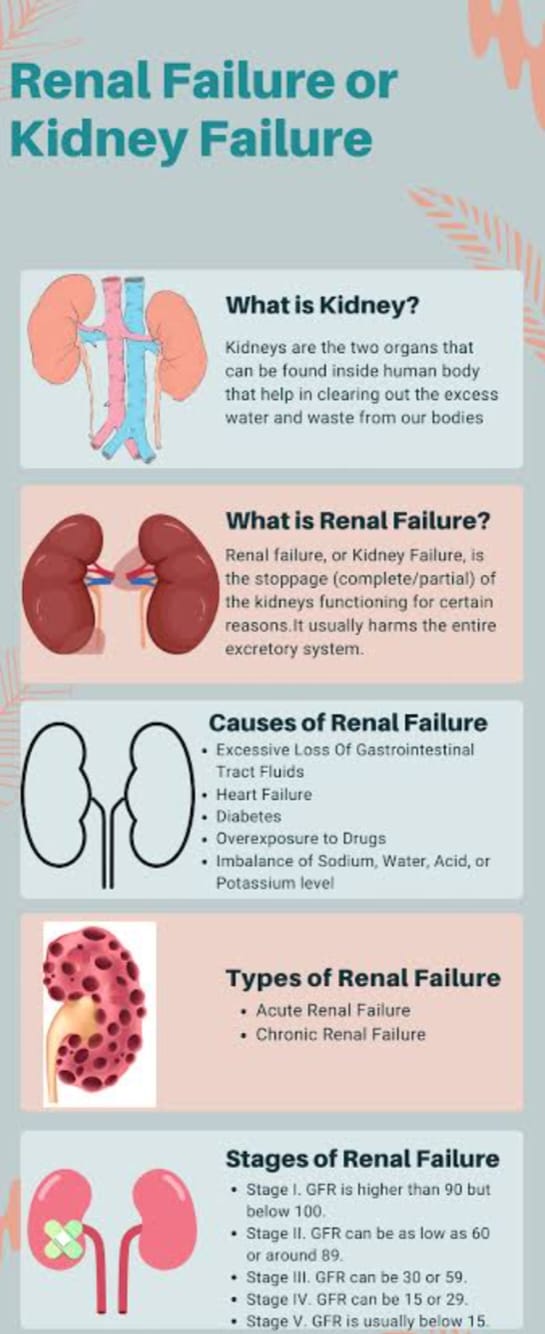Chronic kidney(renal) disease / Renal Failure
Chronic kidney disease (CKD), also known as chronic renal disease or chronic renal failure, is a progressive loss of renal function over a period of months or years.
Causes: -
The most common causes of CKD are diabetes nephropathy, hypertension and glomerulonephritis.
Signs and symptoms:
Symptoms may include:
- General ill feeling and fatigue
- Generalized itching and dry skin
- Headache
- Weight loss without trying to lose weight
- Appetite loss
Other symptoms that may develop, especially when kidney function has worsened:
- Abnormally dark and light skin
- Bone pain
- Brain and nervous system symptoms like confusion, drowsiness, numbness in hands/feet.
- Breath odor
- Bleeding tendency, or blood in the stool
- Sleep problems
- Swelling of the feet and hands
Chronic kidney disease is identified by a blood test for creatinin. Higher levels of creatinin indicate a falling GFR and as a result a decreased capability of the kidneys to excrete waste products. Creatinin levels may be normal in the early stages of disease, and the condition is discovered if urine analysis shows that the kidney is allowing the loss of protein or RBC into the urine.
To fully investigate the underlying cause of kidney damage, various forms of blood tests and often renal biopsy are employed. Recent professional guidelines classify the severity of chronic kidney disease in five stages, with stage 1 being the mildest and usually causing few symptoms and stage 5 being a severe illness with poor life expectancy if untreated.
Stage 5 CKD is also called established chronic kidney disease and is synonymous with the now outdated terms end-stage renal disease (ESRD), chronic kidney failure (CKF) or chronic renal failure (CRF). Classification: Staging of chronic kidney disease is a way of quantifying the severity of CKD. Chronic kidney disease has been classified into 5 stages.
Stage 1: Normal GFR (> 90 mL/min/1.73 m2) plus either persistent albuminuria or known structural or hereditary renal disease
Stage 2: GFR 60 to 89 mL/min/1.73 m2
Stage 3: GFR 30 to 59 mL/min/1.73 m2
Stage 4: GFR 15 to 29 mL/min/1.73 m2
Stage 5: GFR < 15 mL/min/1.73 m2
There is no specific treatment to slow the worsening of chronic kidney disease. If there is an underlying cause to CKD, may be treated directly with treatments aimed to slow the damage. Severe CKD needs dialysis or a kidney transplant.
Homoeopathic remedy:-
- The individualized homoeopathic treatment does wonders here and has prevented a large number of cases progressing to stage of dialysis or renal transplant.
- Majority of these cases come to homoeopathic rescue as a last resort as they can`t afford long-term dialysis and transplant.
- The other small group of patients want to know the benefits of Homoeopathic treatment over dialysis and if Homoeopathic treatment be carried along with Hemodialysis.
1. Patients already on long-term Hemodialysis pending renal transplant:
Homeopathy has a great role to play here. Research experiments in various hospitals reveals the following facts :
(a) Indicated homoeopathic remedies reduced the number of dialysis needed over a period of time.
(b) Indicated homoeopathic remedies reduce and overcome the complications associated with chronic dialysis therapy.
2. Complications of dialysis & its Homeopathic Management.
These patients develop a variety of psychiatric, neurologic and somatic disorders. A neurologic disorder `Dialysis dementia` is a characteristic example.
In the mental sphere, these patients become very depressive; their reduced physical abilities make them sad and depressive. Heparin necessary during the hemodialysis procedures to prevent clotting leads to complications such as subdural hematoma and intracerebral hemorrhage. Selected homoeopathic medicine is of great help here. .
Advantage of Homeopathic treatment
1. Homeopathic medicines can be stopped in 2 to 5 years depending on the severity and underlying cause of the disease.
2. Though Homeopathy does not provide any substitute for Kidney but it can revive the damaged organ as it has been proved.
3. Patient’s kidney starts improving as soon as he/she starts taking homeopathic treatment. It helps the patient withdrawing from dialysis.
4. Homeopathy stimulates someone’s immune system to perform normal functions, in this way damaged kidneys start functioning normally.
5. Homeopathic treatment not only repairs the damaged kidneys but simultaneously it helps in maintaining the blood sugar level and blood pressure to a normal level.
6. Very well selected Homeopathic medicine can stop the further damage of diseased organ without delay and further treatment may revive the damaged tissue.
7. As the kidney starts working properly bio-chemistry becomes normal naturally.




